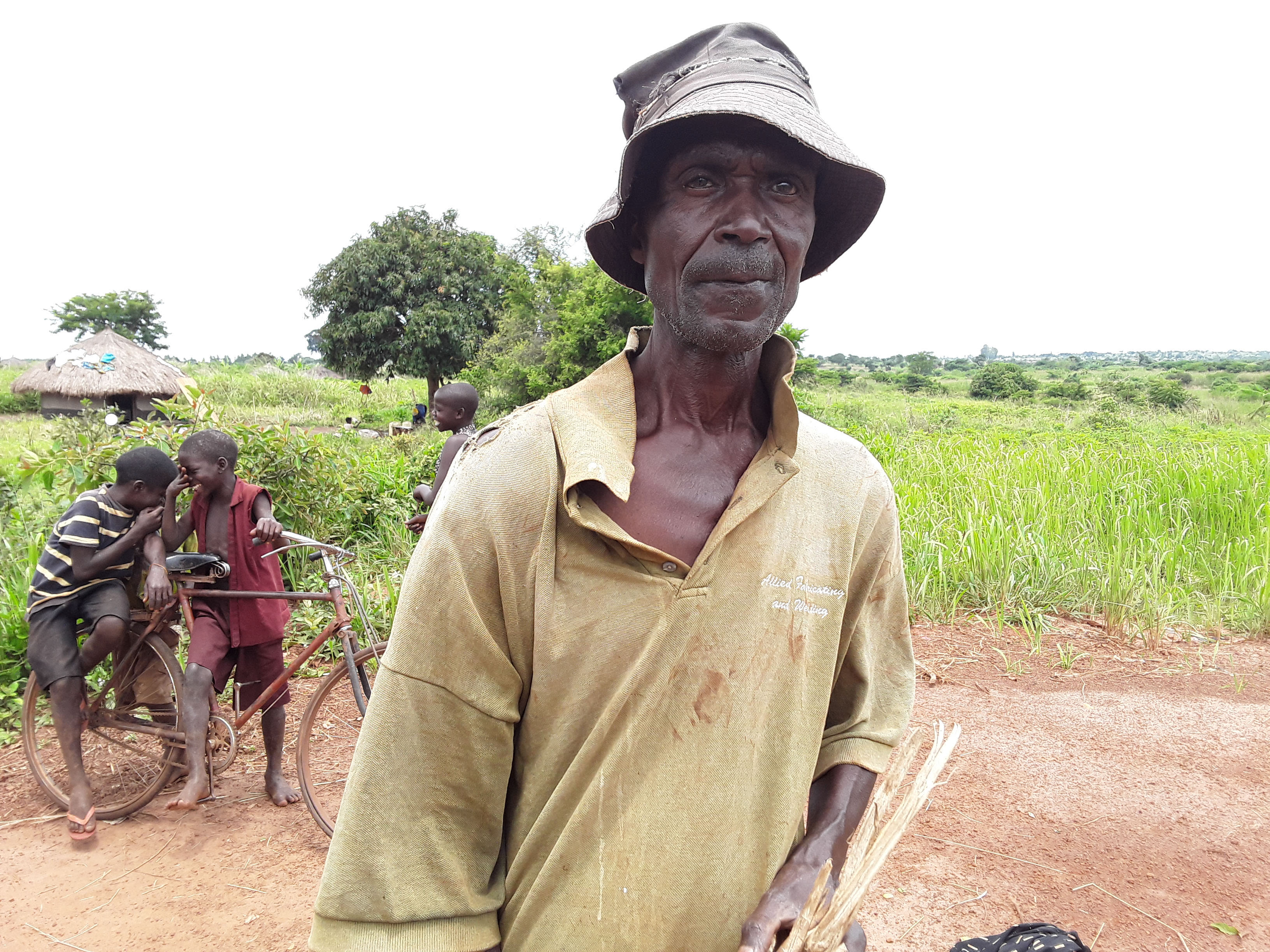This project is a part of our shared program with The Water Trust. Our team is pleased to directly share the below report (edited for clarity, as needed).
Welcome to the Community
This hand-dug well will be installed in Okweche, Uganda.
Okweche Central is a farming village located in Okweche Local Council, Diima Parish, Mutunda Sub-County of Masindi District. Beautiful scenery surrounds this village, characterized by gentle slopes covered by gardens with which residents derive their livelihood.
Okweche Village also has a swamp on one side and a lake on the other, which provide water for both domestic use and farm irrigation. Yields from the small garden plots from this village are so high that the family's surplus food can be sold to the bordering villages.
Mr. Odong Francis applied for this project. He is a 40-year-old man who doubles as the village chairman and a father to six children. He shared that water-related illnesses like diarrhea, dysentery, typhoid and cholera are common, especially during rainy seasons. This is mainly due to drinking unboiled contaminated water.
At the end of every evening, most of the men from around here gather at the trading center in the middle of the village to share tales and enjoy local brews.
This community faces other challenges beyond the shortage of clean drinking water: There is no access to education, no health facilities, a poor road network, and theft to name a few.
Water Situation
Water is most often fetched from the swamp or lake. Families also keep containers outside their homes to catch water during the rainy seasons. This surface water is highly contaminated by a myriad of sources.
The nearest source of clean water is over two kilometers away, at Okweche Primary School. This school is too far away for students to attend on a daily basis, but an occasional trip is made for drinking water. Unfortunately, the contaminated swamp and lake are most often used for drinking because of their proximity.
Locals bring plastic jerrycans to dunk and fill at the lake or swamp. Children often just carry a cup to get a quick drink.
Sanitation Situation
Over half of families have their own pit latrines, while the other handful of families either share latrines or practice open defication. Most of the latrines we observed were well-built with bricks and mud. A few other people told us they had latrines at one time, but they did not weather the rainy season.
According to local farmer Kato Julius, "The sanitation of our community is not alarming compared to other areas." Either way, the Uganda program requires that every household have and use a basic pit latrine before the pump handle is installed. Clean water does not go far if it cannot be kept clean at the household level.
Plans: Hygiene and Sanitation Training
The main objectives are the use of latrines and observing proper hygiene practices, since these goals are inherently connected to the provision of clean water. Open defecation, water storage in unclean containers and the absence of hand-washing are all possible contaminants of a household water supply. Each participating village must achieve Open Defecation Free status (defined by one latrine per household), prior to the pump installation for a shallow hand-dug well.
This social program includes the assignment of one Community Development Officer (CDO) to each village. The CDO encourages each household to build an ideal homestead that includes: a latrine, hand-washing facility, a separate structure for animals, rubbish pit and drying rack for dishes.
We also implement the Community Led Total Sanitation (CLTS) approach with each of our village partners. This aims to improve the sanitation and hygiene practices and behaviors of a village. During these sessions, village leaders naturally emerge and push the community to realize that current practices of individual households – particularly the practice of open defecation– are not only unhealthy, but affect the entire village. CLTS facilitates a process in which community members realize the negative consequences of their current water, sanitation and hygiene behaviors and are inspired to take action. Group interactions are frequent motivators for individual households to: build latrines, use the latrines and demand that other households do the same.
Plans: Hand-Dug Well
The community will participate in excavating and constructing the water source. In the meantime, the aim is that all households own an improved latrine. Many households do not use a latrine but use the bush. Due to open defecation, feces are spread all over the village. This leads to waterborne diseases and contamination of groundwater and surface water. Our aim is that the community is able to live a healthy life free of preventable diseases. We endeavor that at the end of our presence in the community, people will have both access to sustainable, clean water and access to sanitation. We have now organized families to form digging groups for latrine construction, and empowered them with tools to use.
Actual well construction will take four to six weeks if there are no challenges. The well will be lined with bricks and sealing clay, and finished with a Consallen pump.
Thank You for partnering with us to get clean water to the people living in Okweche Central!



 Rehabilitation Project
Rehabilitation Project





















